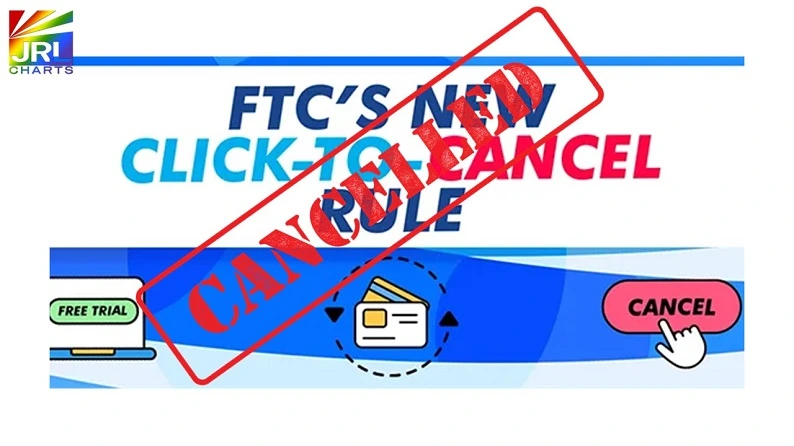By: Keith Witchka, Senior Editor | JRL CHARTS — Gay Adult News — Legal
ST. LOUIS — (July 9, 2025) — In a move applauded by subscription-based platforms, a three-judge panel of the U.S. Eighth Circuit Court of Appeals has vacated the Federal Trade Commission’s controversial “Click-to-Cancel” rule — a regulation designed to simplify online subscription cancellations.
Related Coverage Links on JRL CHARTS
• Gay Adult News Legal Coverage – Court Battles & Regulatory Updates
• Latest in Gay Adult News from JRL CHARTS
• Florida Just Won the Porn War – FSC Drops Lawsuit After Devastating Supreme Court Loss
What the FTC’s ‘Click-to-Cancel’ Rule Was Designed to Do
Announced on October 16, 2024, the rule would have required all online businesses to offer consumers a simple, easy-to-find mechanism — such as a single click or button — to cancel recurring subscriptions. The policy also mandated that companies:
-
Obtain explicit consent before enrolling users in auto-renewals
-
Disclose all material terms upfront, including billing cadence
-
Avoid forcing users to navigate hidden links or customer service calls to cancel
“Too many companies make it difficult to unsubscribe from services,” said FTC Chair Lina Khan at the time. “The FTC’s rule would have returned control to the consumer.”
(Source: FTC Press Release, October 16, 2024)
Industry Lawsuit Blocks Rule Before It Takes Effect
Originally scheduled to go into effect 180 days after publication in the Federal Register, the rule faced immediate pushback from digital commerce groups and trade associations. Critics argued the FTC overstepped its authority and that the regulation would impose unreasonable burdens on subscription-based businesses.
The legal challenge resulted in the Eighth Circuit issuing an order to vacate the rule, just days before its official enforcement date.
Why Adult Sites and Streaming Platforms Are Celebrating
For LGBTQ+ streaming services, adult content platforms, and pleasure-product subscription sites, the FTC’s rule posed a potential operational nightmare. Many in the industry viewed it as a backdoor attempt to limit monetization models long used across the digital landscape — from trial-to-subscription pipelines to loyalty-based billing structures.
The court’s ruling is now being interpreted as a major win for platforms reliant on recurring revenue — though consumer advocates warn the decision leaves users vulnerable to dark UX practices.
Closing Line with Branding:
Stay with JRL CHARTS Gay Adult News – Legal for the latest on federal subscription laws, court rulings, and how they impact LGBTQ+ adult platforms and B2B media.
- LGBTQ Corporate Participation Plunges 65% in 2026 as DEI Retreat Reshapes Business Landscape - February 22, 2026
- Forbidden Fruits (2026) Ignites Buzz With Sapphic Undertones and Witchy Mall Cult Drama - February 21, 2026
- Trump Targets Netflix Board Member Susan Rice After ‘Take a Knee’ Remarks Spark Political Firestorm - February 21, 2026
// Affiliate Disclosure: JRL CHARTS is a digital news and media platform. We do not host, stream, or sell adult content. Some outbound links may contain affiliate tracking to licensed studio-owned platforms (e.g., LatinBoyz, AEBN, BiLatin Men). These links lead to legal, age-gated distributors and are provided strictly for editorial and informational purposes only.







